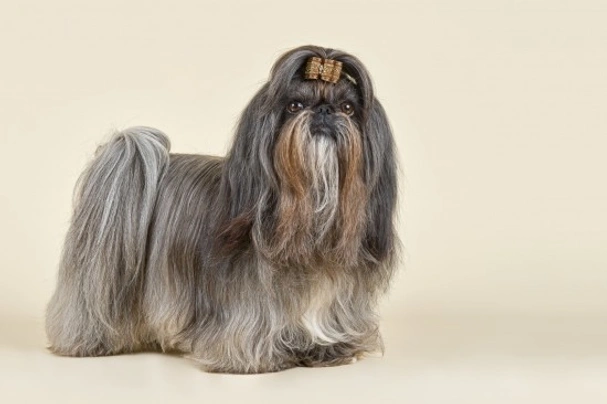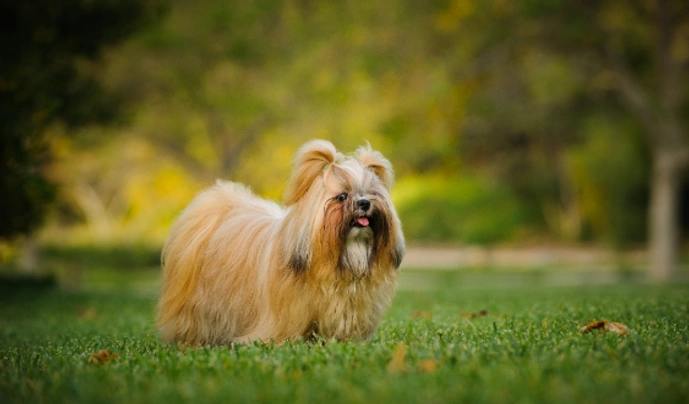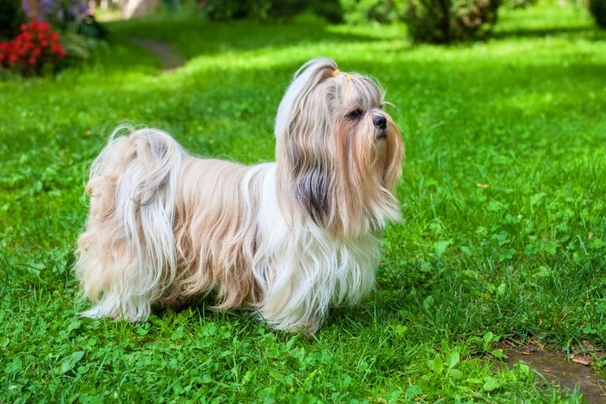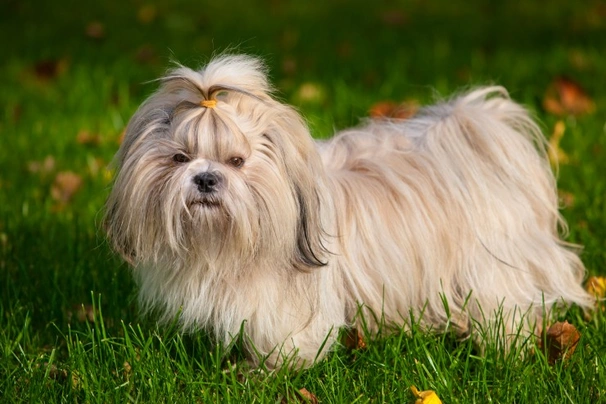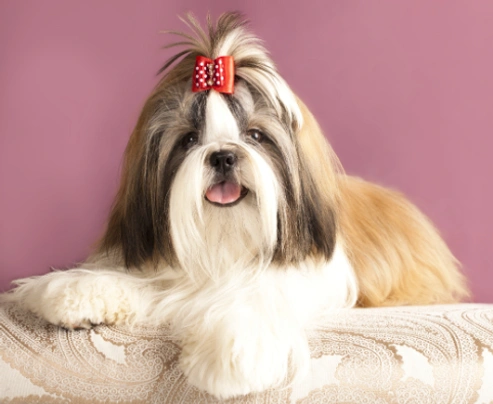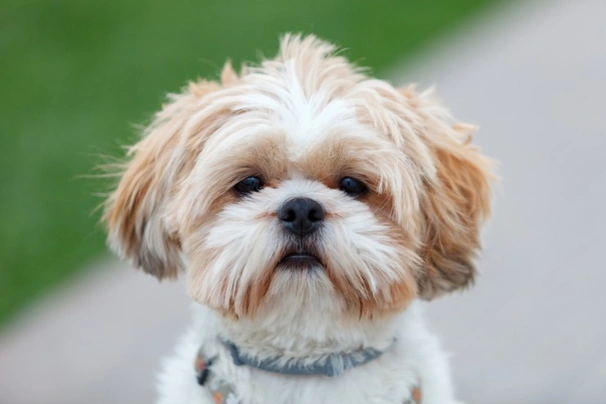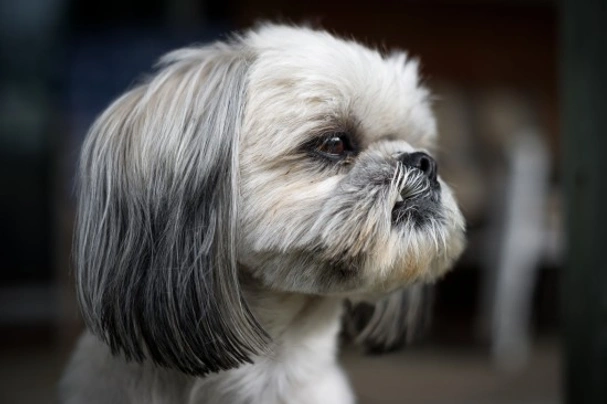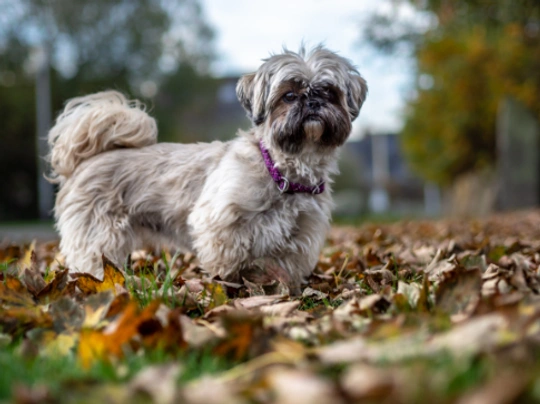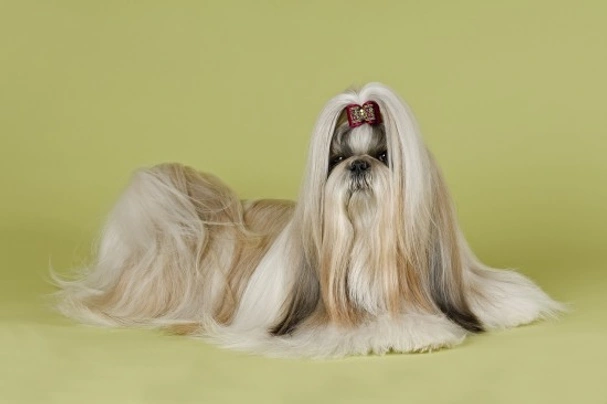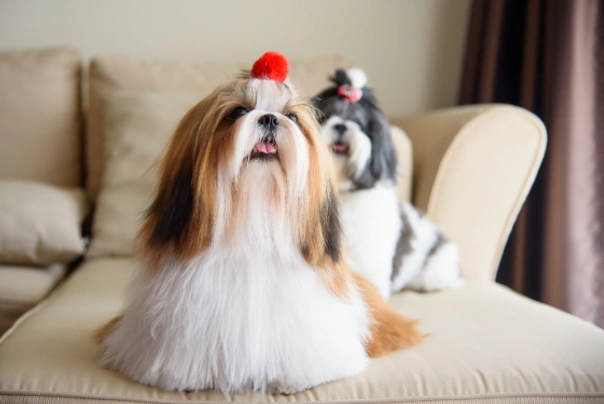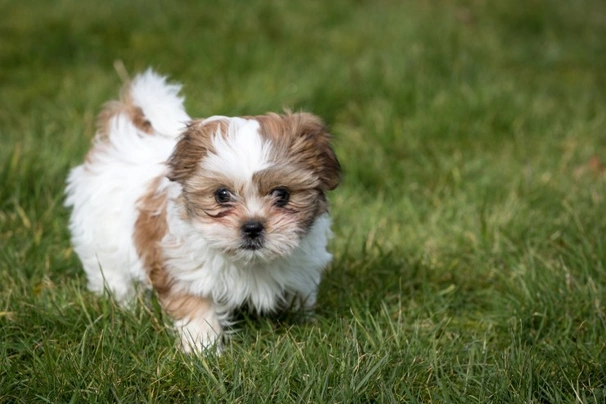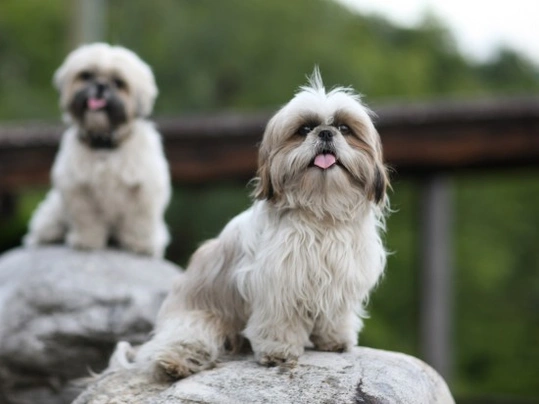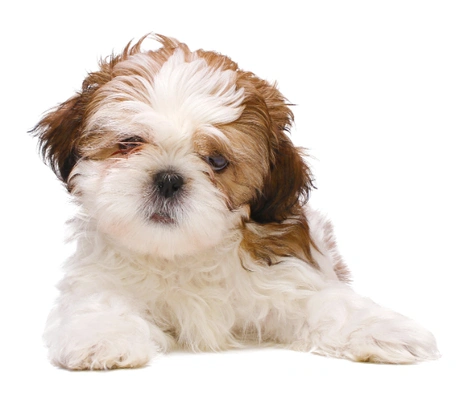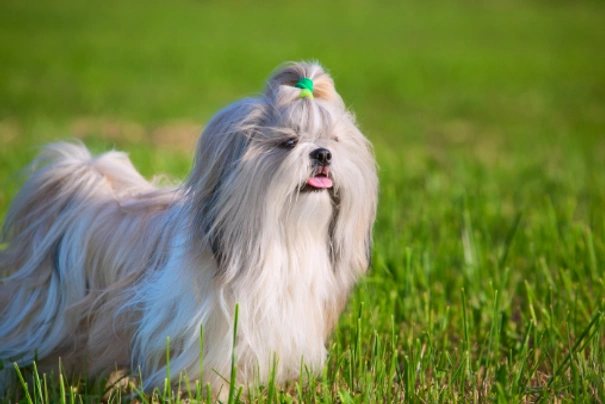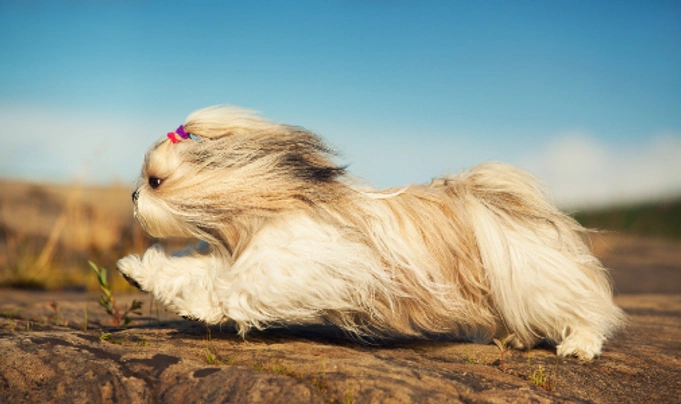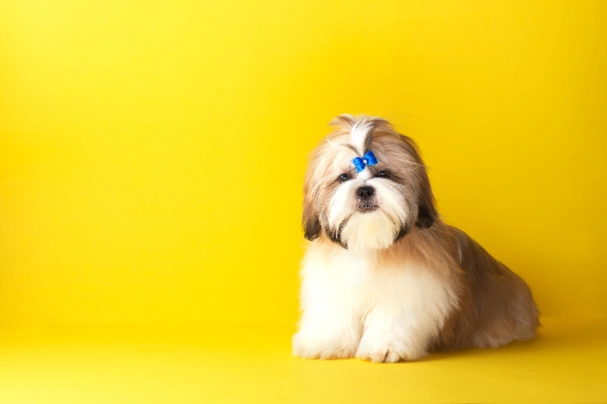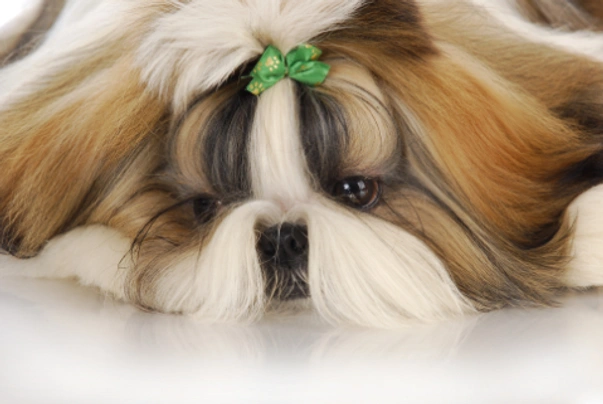Shih Tzu
Pros
Cons
Introduction of the Shih Tzu
The Shih Tzu is a distinctive and charming small dog renowned for its luxurious long coat and charismatic "chrysanthemum face". Originally bred as a royal companion in China, this breed remains a highly popular choice worldwide for those seeking a lively yet affectionate pet small enough for apartment living yet brimming with personality. Their alert, bold character pairs beautifully with their loyalty, making them a beloved member of any family.
Physically compact and sturdy, Shih Tzus measure between 20 to 28 cm in height and weigh between 4 to 7.25 kg. Known for their outgoing yet adaptable temperament, they thrive on close human companionship and enjoy being at the heart of family life, a trait that suits novice owners and families alike. Not just beautiful, they have a spirited nature that ensures life is never dull around them.
Thanks to their heritage as palace companions, Shih Tzus are both intelligent and social but do require daily mental stimulation alongside regular walks to maintain their happiness and health. Their long, dense coat demands consistent grooming to prevent mats and maintain skin health. Prospective owners should be prepared for this commitment to coat care to enjoy the full charm of this regal breed.
Perfect For
People living in flats or smaller homes wanting a devoted, alert companion; first-time dog owners who appreciate an intelligent and trainable pet; families with older children where gentle dogs are welcomed; and individuals or couples seeking a sociable, adaptable dog.
Key Considerations
The Shih Tzu requires extensive grooming, including daily brushing and regular professional trims. Their strong need for companionship means they do not tolerate long periods alone, often leading to separation anxiety if neglected. Additionally, potential health concerns related to their brachycephalic facial structure and hereditary ailments require responsible breeding choices and regular veterinary care.
History of the Shih Tzu
The Shih Tzu's origins trace back thousands of years to Tibet, where Tibetan monks treasured them as loyal watchdogs and companions. These early "Tibetan Lion Dogs" were sent as prestigious gifts to Chinese Emperors, where selective breeding began in earnest to develop the distinctive breed known today as the Shih Tzu. Predominantly developed in China under the patronage of the Dowager Empress Tzu Hsi in the late 19th century, the breed's name translates from Mandarin as "Little Lion," reflecting its revered status.
Early Development
The breed evolved through blending Tibetan Lion Dogs with short-faced Chinese breeds such as the Pekingese and Chinese Pug, giving the Shih Tzu its unique brachycephalic features. The Dowager Empress's dedicated breeding programme ensured the breed's survival and refinement, primarily within the Imperial Palace, where they were kept in privileged quarters with attendants devoted solely to their care.
Modern Recognition
A handful of Shih Tzus reached Europe before World War I, but the breed was firmly established in Britain by 1928 when Lady Brownrigg introduced foundation dogs Hibou and Shu-ssa. In 1949, The Kennel Club formally recognised the breed, establishing breed clubs and stimulating popularity in the show ring and as companion pets. Today, the Shih Tzu is firmly embedded in the UK as a treasured family pet and show dog, maintaining strong ties to its rich history.
Appearance of the Shih Tzu
Size and Build
The Shih Tzu stands between 2028 cm tall at the withers, with both males and females weighing approximately 4.0 to 7.25 kg. They possess a compact, sturdy frame with a broad, deep chest and well-muscled limbs, balanced by a firm, level back and muscular hindquarters. Their bodies are proportioned to present a dignified yet lively appearance.Coat and Colours
Known for a luxurious, silky, dense long coat consisting of a fine outer layer and a moderate undercoat that never appears woolly. Coats may exhibit slight waves, permissible per Kennel Club standards. All colours and combinations are accepted except merle, with parti-coloured dogs especially prized for having white blazes on their foreheads and white tips on their prominent, plume-like tails.Distinctive Features
The breed's hallmark "chrysanthemum face" arises from hair that grows outwards around the nose bridge and muzzle, which is short, square, and wide with a black nose in most colours (liver coats have matching noses). Their large, expressive dark eyes convey warmth, complemented by a broad, rounded skull with well-spaced eyes. Ears are hung low with long leathers, and the slightly undershot mouth adds to their characteristic expression. Tail carriage is high, curling gaily over the back in a plume, while their smooth gait shows confident, agile movement.Gender Differences
Male and female Shih Tzus are similar in size and build, though males may be slightly taller and heavier. Temperamentally, females can be more independent, while males tend to be more outgoing but both retain the breeds signature affectionate nature.Temperament of the Shih Tzu
Core Personality Traits
The Shih Tzu is a vivacious, confident little dog with a friendly and outgoing character. They attach deeply to their family, thriving on human interaction and being involved in daily life, which makes them popular as companion dogs worldwide. Their intelligence and eagerness to please make them excellent for first-time dog owners, though their independent streak means training requires patience and consistency.Social Behaviour
While naturally sociable, Shih Tzus can be cautious and reserved around strangers, rarely aggressive but often preferring a watchful distance until trust is established. They are playful clowns, loving games and being the centre of attention, which their clever minds quickly pick up. However, their prey drive means smaller pets may be tempting targets for play-chasing, so supervision in multi-pet homes is advised.Working Instincts
Separation anxiety can be a problem due to their strong companion needs; they prefer households where at least one person is present throughout the day or where company is provided by another pet. They are vocal alert watchdogs and can develop excessive barking if not properly trained from a young age. Despite their playful nature, Shih Tzus are not natural swimmers and care should be taken when near water due to their brachycephalic features and dense coat which can weigh them down.Common Behavioural Challenges
The breed's tendency to separation anxiety and vocal alertness are key challenges. Addressing these through early training, environmental enrichment, and structured companionship helps mitigate stress-related behaviours. Owners often report needing consistent efforts to curb excessive barking and provide safe outlets for their playful energy.Intelligence / Trainability of the Shih Tzu
Shih Tzus exhibit both intelligence and independence, necessitating early and consistent training to channel their willful tendencies beneficially. While quick learners, their occasional stubbornness means that patience and positive reinforcement are essential for successful obedience training. Early socialisation is critical to prevent wariness of strangers and reduce barking tendencies.
Puppy Training Priorities
From the first weeks, focus on basic commands such as sit, stay, come, wait, leave, quiet, and bed to establish communication and boundaries. Socialisation with diverse people, animals, and environments in the first six months is paramount to develop a well-rounded temperament.
Training Methods That Work
Gentle, reward-based techniques with frequent short sessions cater well to their attention spans. The use of toys, treats, and praise will motivate them effectively, whereas harsh correction tends to backfire, increasing stubbornness. Consistency across all family members is vital.
Advanced Training Potential
Shih Tzus are capable of excelling in canine sports such as obedience, rally, and therapy dog work, showcasing their eagerness and intelligence when trained with care. Their sociable nature makes them ideal candidates for therapy roles requiring calm and friendliness.
Common Training Mistakes
Common pitfalls include inconsistency, impatience, and failure to socialise adequately. Allowing attention-seeking barking to go unchecked can lead to problematic behaviour. Owners should avoid over-sheltering puppies, as this can foster small dog syndrome, leading to dominance and behavioural issues in adulthood.
Children and other
Age-Specific Interactions
The Shih Tzu's affectionate and social nature often makes them a good companion for families with children, provided interactions are carefully managed. With toddlers, caution is advised as their small size and delicate structure can make them prone to injury if handled roughly, and they may nip if feeling threatened or overwhelmed.Teaching Children Proper Interaction
Older children and teenagers tend to bond well with Shih Tzus, especially when they have been socialised alongside children from puppyhood. Teaching children to respect the dog's space and signals is crucial to foster a harmonious relationship, with adult supervision strongly recommended to prevent inadvertent stress or rough play.Breed-Specific Considerations
Family environments with other pets generally suit Shih Tzus well, though supervision is necessary with small animals due to their playful and sometimes feisty nature. Their size and energy levels require patience, as while they tolerate playful children, they are not suited to high-energy boisterous households.Creating Safe Environments
Creating safe spaces where the Shih Tzu can retreat undisturbed helps prevent stress, with adequate supervision preventing accidental injury or overwhelming the dog. Real-world experience shows well-socialised Shih Tzus can be loving, gentle, and protective family members.Health of the Shih Tzu
The Shih Tzu typically enjoys a lifespan of 12 to 14 years with proper care. However, as a brachycephalic breed, they are predisposed to certain health concerns requiring vigilant monitoring and preventive care.
Breed-Specific Health Conditions
Common issues include brachycephalic airway syndrome manifesting as breathing difficulties due to pinched nostrils and elongated soft palates. Hip dysplasia, hernias (predominantly umbilical and less commonly inguinal), dental problems, bladder stones, and susceptibility to autoimmune diseases are notable hereditary concerns. Eye injuries and Progressive Retinal Atrophy also appear; though PRA tests are limited for this breed, ongoing screening is advised.
Genetic Testing Requirements
Though no universal DNA tests are currently established for Shih Tzus, responsible breeders perform hip scoring and screen for hereditary conditions to guide breeding decisions. Genetic health schemes remain under development and monitoring reputable breeder practices is vital.
Preventive Healthcare Schedule
Puppies receive primary vaccinations before rehoming, followed by booster shots at 10-12 weeks and annual or as-advised boosters thereafter. Regular worming and dental care are crucial. Given their predisposition to ear infections, routine ear hair plucking and mite prevention are essential. Veterinary review annually or biannually early in life supports long-term wellbeing.
Insurance Considerations
Shih Tzus' propensity to brachycephalic-related conditions and hereditary illnesses often reflect in insurance premiums, which tend to be moderately higher than average. Comprehensive policies covering hereditary and chronic illnesses are recommended to manage potential costs effectively.
Caring for the Shih Tzu
Shih Tzus demand a dedicated daily care routine to ensure their coat, health, and wellbeing remain optimal. Their thick, silky coat requires regular grooming combined with routine skin inspections to prevent irritation and mats. Daily exercise, though moderate, is essential to maintain a healthy weight and mental stimulation.
Daily Care Routine
Typically, a morning walk followed by playtime in the afternoon suits their exercise needs, supplemented by interactive games and training to prevent boredom. Feeding should be consistent and balanced, avoiding overfeeding to prevent obesity.
Living Environment Needs
Suitable for apartment living due to their modest exercise requirements, Shih Tzus nonetheless benefit from access to a secure garden or safe outdoor space for exploration. They adapt well to various climates but care must be taken to avoid overheating in summer due to their short muzzles.
Seasonal Care Adjustments
During warmer months, avoid vigorous exercise midday and provide cooling methods. In colder climates, senior dogs especially benefit from heated bedding and warmer indoor spots. Coat trimming may be necessary to adjust comfort level seasonally.
Senior Care Adaptations
Older Shih Tzus require softer bedding for joint support, regular mobility assessments, and diet adjustments to address changing metabolism and dental conditions. Heat mats and gentle physical therapy enhance quality of life.
Grooming of the Shih Tzu
The Shih Tzu's luxurious coat, while a hallmark of the breed, requires a detailed grooming regimen beyond basic brushing. Daily quick comb-throughs help prevent tangles, with weekly thorough grooming sessions including brushing, bathing, and drying to keep the coat silky and healthy.
Coat Maintenance Schedule
Daily attention to the topknot, face hair, eyes, and ears is essential to prevent matting and irritation. A weekly full brushing session with pin and bristle brushes, combined with a metal comb, removes loose hair and prevents knots. Bathing typically occurs every 4 to 6 weeks using dog-specific shampoo and conditioner.
Professional Grooming Requirements
Regular visits every 6 to 8 weeks to professional groomers ensure the coats length remains manageable and styled according to breed standards or owner preference. Groomers trim hair around the eyes, feet, and sanitary areas carefully to maintain hygiene and comfort.
Home Grooming Techniques
Owners should use quality grooming tools including pin brushes, metal and plastic combs, rubber bands for topknots, rounded-end scissors for trimming, and dog-safe nail clippers. Face washing daily prevents staining and skin irritation around the mouth and eyes.
Common Grooming Challenges
Mats can develop quickly if neglected, especially behind ears and under limbs. Skin infections from moisture trapped in dense coats may occur without proper drying. Seasonal shedding increases brushing requirements in spring and autumn, and grooming routines must adjust accordingly.
Exercise of the Shih Tzu
While Shih Tzus are playful and enjoy their walks, they have relatively low exercise needs compared to many breeds. Typically, 30 to 40 minutes of daily exercise split between a shorter morning walk and a longer afternoon stroll satisfies their physical health requirements and keeps their lively spirit balanced.
Daily Exercise Requirements
Consistent but moderate exercise helps prevent obesity and supports mental health. Activities should be adjusted based on age, with puppies requiring shorter sessions and seniors benefiting from gentler movement.
Suitable Activities
In addition to walks, Shih Tzus thrive with interactive games, gentle play sessions, and simple training exercises that engage their intelligence and prevent boredom. They enjoy indoor games and puzzle toys that stimulate their minds.
Exercise Restrictions
Puppies should avoid prolonged strenuous activity to protect developing joints, while hot or humid weather necessitates shorter, cooler walks to prevent breathing difficulties due to their short muzzles. Swimming is generally not recommended due to their swimming limitations and coat weight.
Mental Stimulation Ideas
Providing puzzle feeders, scent games, and training challenges daily keeps the Shih Tzu mentally sharp and reduces behavioural problems related to boredom, such as excessive barking and chewing.
Feeding of the Shih Tzu
Nutrition for the Shih Tzu must support their small size, brachycephalic traits, and potential sensitivity to allergens. Feeding twice daily with high-quality commercial diets formulated for small breeds is recommended to maintain optimal weight and health.
Nutritional Requirements
Balanced protein and fat levels are essential, with particular attention to calories to avoid obesity. Puppies require increased nutrients for growth; adults need maintenance formulas that support healthy skin and coat. Fat content around 15-20% and protein levels around 25-30% are typical targets.
Feeding Schedule Guidelines
Feed puppies 3 to 4 times daily until six months, reducing to twice daily for adults. Portion sizes should be adjusted according to weight, age, and activity level, with regular monitoring to prevent overfeeding.
Special Dietary Considerations
Due to susceptibility to allergies, avoid foods containing animal fat, cereals, corn, soy, wheat, and artificial additives. Consulting a vet nutritionist for custom diets or supplementation, especially for skin health, may benefit some dogs.
Weight Management
Obesity is a serious concern; owners should regularly assess body condition and adjust food and exercise accordingly. Treats should be limited and factored into total daily caloric intake.
Shih Tzu price
The purchase price for a Shih Tzu puppy from a licensed breeder typically ranges between 900 to 1,400, while individual breeders might offer puppies from 700 to 1,000 depending on bloodlines, health clearances, and coat quality. Prices may fluctuate by region and demand, with show-quality puppies commanding premiums.
Initial setup costs include essential supplies such as a quality harness, bowls, grooming tools, bedding, toys, and initial veterinary care, budgeting around 200 to 400. Food expenses vary, generally set between 30 to 40 monthly for premium diets suited to their small size and dietary needs.
Routine veterinary costs, including vaccinations, booster shots, annual health checks, and preventive treatments, average 200 to 300 yearly. Insurance can add 18 to 40 monthly based on coverage level, region, and dog age. Grooming expenses are significant, with professional trims costing 40 to 60 every 6 to 8 weeks.
Monthly upkeep averages 60 to 90 depending on insurance and grooming frequency. Lifetime costs should consider regular health care, grooming, diet, and occasional emergencies to budget effectively for the breed. Potential owners can find Shih Tzu for sale on Pets4Homes.
Buying advice
When considering a Shih Tzu, thoroughly vet potential breeders or sellers to ensure ethical practices and healthy puppies. Viewing puppies with their mother and littermates, checking for microchip and vaccination records, and obtaining full pedigree documentation is essential for responsible ownership.
Finding Ethical Breeders
Seek breeders who comply with Kennel Club guidelines, prioritise health testing, and limit the number of litters per dam per regulations. Avoid breeders advertising "tea cup" or unusually small dogs, as these often risk serious health issues. Online scams are prevalent; never buy a puppy sight unseen or pay deposits without verification.
Health Testing Verification
Ensure the breeder provides evidence of relevant health checks including hip scoring, eye clearances, and any available genetic screening. Transparent access to such documentation is a hallmark of ethical breeders.
Puppy Selection Process
Assess individual puppies for healthy temperament, alertness, and physical condition. Spend time observing interaction with littermates and people to identify sociability and temperament suitability.
Contract and Guarantee Review
Obtain and scrutinise contracts covering health guarantees, return policies, and breeder support commitments. Be wary of vague or absent contracts that offer limited recourse.
Rescue and Adoption Options
Consider adopting through Shih Tzu-specific rescues or general breed rescue organisations, which provide well-socialised pets and support ethical rehoming efforts. This route offers a compassionate alternative to purchasing. Prospective owners can find Shih Tzu for sale.

